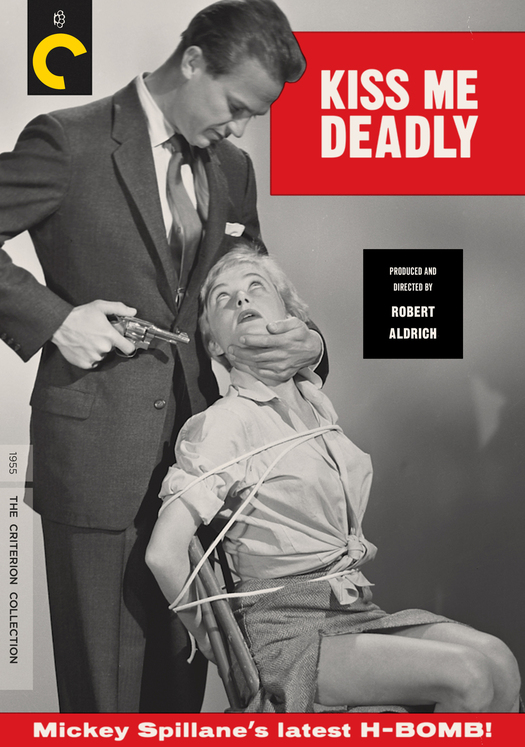
Criterion Collection cover, 2011. Art direction: Sarah Habibi. Design: F. Ron Miller
For my latest Critique column posted on Eye magazine’s website, I have written about the Criterion Collection of DVD covers. These are highly familiar to American film lovers, but not well known outside the United States, where other companies have the rights to these films and Criterion DVDs can only be bought online.
I have also made a selection of 22 Criterion Collection covers for the Eye blog, including Robert Aldrich’s classic film noir Kiss Me Deadly, released later this month.
For the cover and booklet, art director Sarah Habibi and designer F. Ron Miller have opted to use publicity shots from the first release in 1955 rather than imagery from the film, or some other visual interpretation. It’s a counterintuitive piece of art direction because at no point in the movie does Mickey Spillane’s infamous, fascistic, self-loving private eye Mike Hammer (played by Ralph Meeker) menace the Lily Carver character (Gaby Rodgers) with a gun while she’s tied up in a chair. Nor do the other studio scenes of improvised gunplay — shown below — take place. Unlike in the book, in Aldrich’s screen version, the “bedroom dick” Hammer doesn’t even carry a gun, though he’s always ready to pound a thug to a jelly with his fists and has a weird defensive move we never see that somehow reduces even the toughest lunk to a screaming wreck.
But the weapon had to be there because that was the convention. As Philip Thompson and Peter Davenport note wryly in an entry titled “Gun” in The Dictionary of Visual Language (1980), discussed in a previous post, “Overt reference is usually made to its phallic symbolism and it is often seen being manipulated by nubile females. A potent and aggressive object even in humorous contexts.” And, sure enough, in these publicity shots everyone gets to handle the phallic symbol. This was the way that Spillane’s novel, like many other pulp thrillers, had been sold from the start. In early Kiss Me, Deadly paperback covers, the love interest — presumably it’s Carver — gamely brandishes the firearm even as she moves obligingly to loosen her attire. 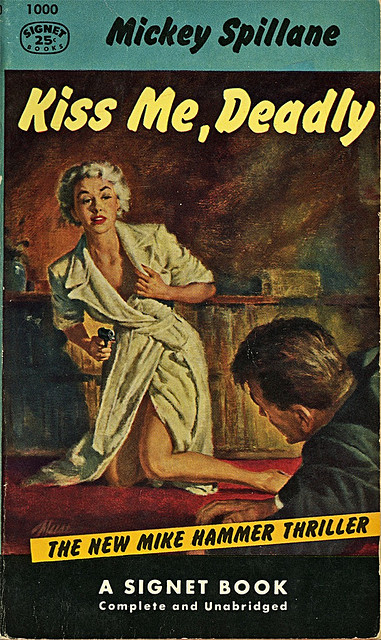
Illustration by James Meese, Signet, 1953. Photograph: Olivander, Flickr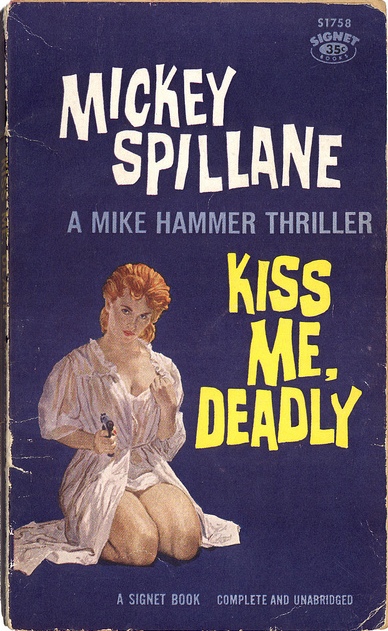
Illustration by James Avati, Signet, 1960. Photograph: bunnyfontaine, Flickr
The original release poster turns this self-abnegating maneuver into an ambivalent clinch.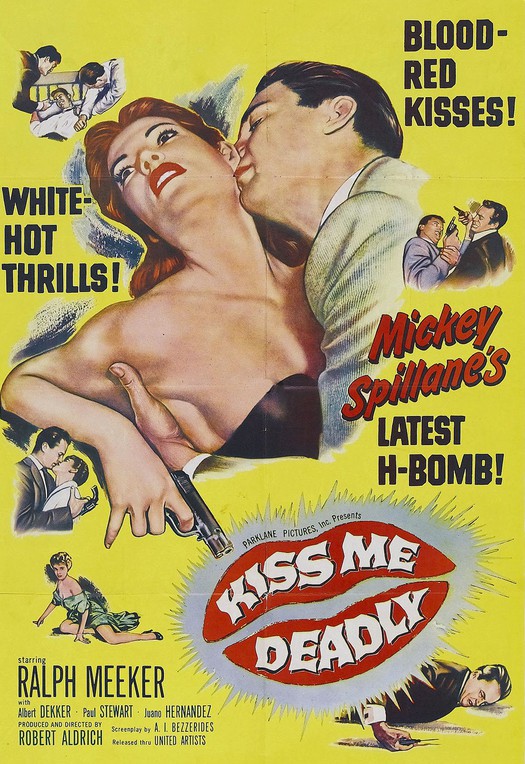
Poster, 1955
Anyone who has seen the film knows that the last thing on the minds of Hammer and his faithful secretary Velda (Maxine Cooper) in the still astonishing apocalyptic final minutes would have been canoodling on the beach with a pistol.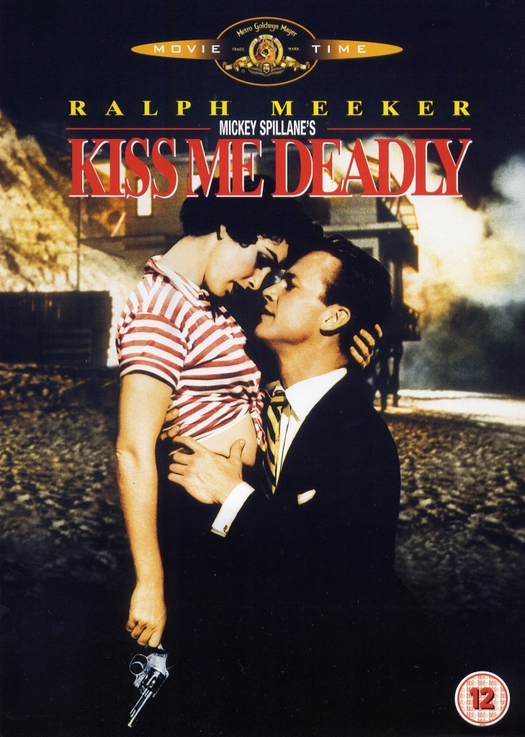
DVD cover for UK release, MGM, 2004
Still, the Criterion version works. We can savor the 1950s retro references; the monochrome artifice; the relative restraint of the eroticism compared to now (not that Aldrich’s Hammer seems interested most of the time); our well-practised ironic take on this kind of imagery; and secretly admit that the gun is one blindingly obvious symbol that just keeps on giving.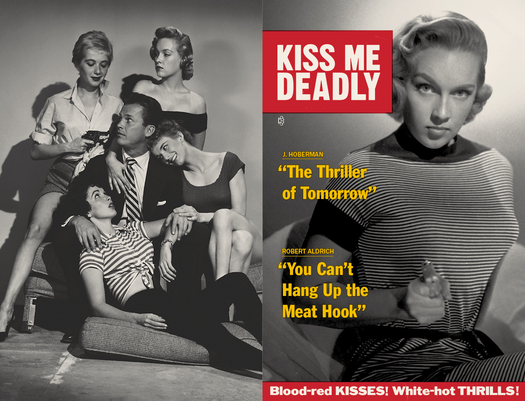
Criterion Collection booklet cover, 2011. Art direction: Sarah Habibi. Design: F. Ron Miller


Comments [2]
Hey Rick,
A little off subject, but who came up with the term ADC Young Guns anyway?
Also note Justin Gignac’s article ADC’s Young Guns Prepare for Battle.
06.08.11
11:45
06.16.11
01:09